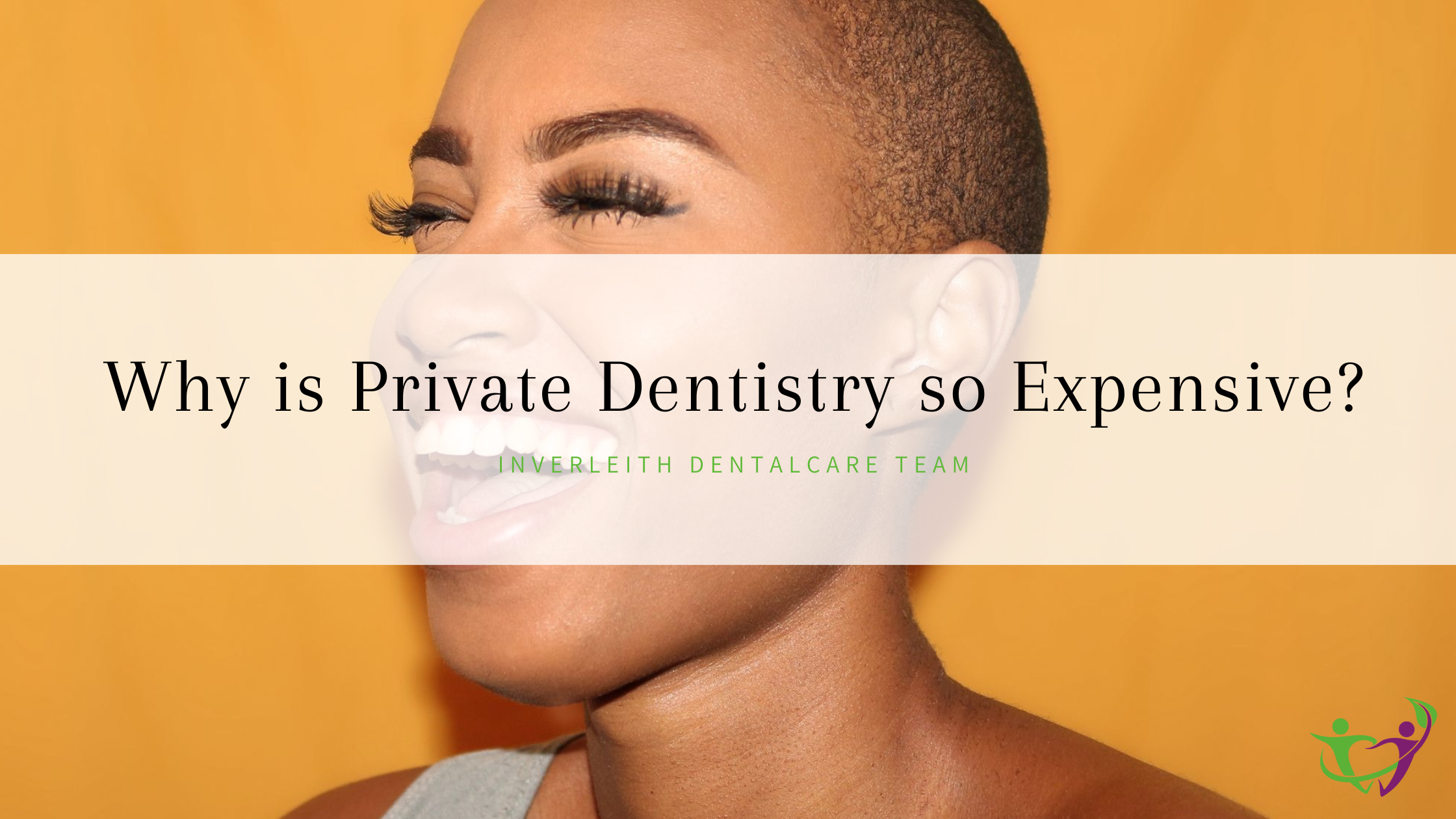This is an interesting question that I have been asked on and off over the last 25 years. More so in the beginning of my career as a private dentist but increasingly again, more recently. This is possibly because with the reduced NHS dentistry availability more people are turning to private dentistry.
But maybe we need to understand,
What makes you feel that it is not worth the value assigned to it?
What do those fees cover for you?
How do you compare the fees charged by different clinics?
So first of all, let’s look at the how the fees are decided.
- Team:
-
- We hire the best team members who have skill, dedication to a lifelong learning and empathy to support you through your dental care.
- The most skilled clinicians who will be treating you. It takes five years to train as a basic dentist. But the real training starts afterwards. Many dentists will choose to fulfil the minimum requirements to keep them on the Dental register, some will undertake some further weekend courses so that they can provide the latest fad. But a few dentists will go the extra mile by undergoing many years of advanced training so that they have a deep understanding of how to competently treat the regular problems that you will suffer. They will be able to highlight sooner the problems which are brewing. This means that as a private dentist they can offer you many options to meet your budget requirements. It also means that by addressing these issues earlier you will avoid the more expensive options later on. These dentists will often supplement their extensive general training with a special interest in one treatment modality. This means that you benefit from someone who has a detailed understanding of general dentistry as well as being able to offer you something that they have really honed their skills at. These clinicians are likely to have self-invested between 5-6 figure sums in their training to benefit you. These are the clinicians that we hire. And like everything in life they are worth the higher investment to have them as part of our team.
- Business Overheads: Dental practices have fixed and variable overhead costs that need to be covered these include:
-
- The best and latest equipment to ensure that you achieve predictable, consistent results.
- Investing in quality materials is crucial for a dental practice as it directly impacts a range of outcomes. Superior materials ensure the durability and longevity of dental restorations, reducing the need for frequent repairs or replacements.
- The best labs who employ skilled craftsman to custom make your dental crowns, onlays, veneers or dentures. High-quality laboratories with skilled technicians may come at a higher cost, but they contribute to better outcomes and longevity of dental restorations.
- The high cost of compliance in the UK which ensures that highest level of health and safety are taken care of on your behalf. This is often overlooked potential dental tourists looking to have their dental-work abroad but not understanding that they have little comeback if events don’t turn out as was anticipated. This is your health and you might have one shot at getting it right. You can’t take it back to the shop and return it if things go wrong.
- Ethical and Legal Responsibilities: Dental professionals carry significant responsibility for patients’ welfare and must maintain a compliant practice. This responsibility and the potential for litigation also factor into the costs of dental care. This high cost of professional insurance which ensures that you are protected no matter what.
- The regular investment in training for all our team members to ensure that we are at the forefront of dentistry.
- Service and Peace of Mind: Quality dental care includes personalised service, thorough planning, and thoughtful consideration of each patient’s unique needs. Dental professionals invest time in diagnosing, planning, and providing comprehensive care, which is an invaluable aspect of dental treatment.
- Time and Dedication: Dental professionals invest time not only during chair-side treatments but also in administrative tasks, planning, and reflecting on patients’ cases. This dedication often goes unrecognised, yet it significantly contributes to the quality of care provided. You might be surprised to learn that our clinicians may be working on your treatment plans during evenings and weekends.
- The Cost of Neglect: Neglecting dental care can lead to more extensive and costly treatments in the long run. Regular dental health checks, preventive care, and early intervention are essential to maintaining oral health and avoiding more significant expenses later on.
When comparing fees these are just some of the factors that need to be considered. Others are the reputation of the practice (really read what people say about them not just how many reviews they have); the warranty that is provided for the work not to mention how they respond to your questions during your dental journey.
The perception of dentistry being expensive may be based on a lack of understanding of the comprehensive nature of dental care, the level of dedication and expertise required, and the costs associated with running a high quality, modern dental practice. Quality dental care should be viewed as a valuable investment in long-term oral health and well-being.
Remember that dentistry is not a product that can be monetised it is a bespoke service provided by a dedicated team of professionals to help you maintain your mouth so that you can eat well, smile, communicate and be intimate with confidence. What value do you put on these factors?
Book your appointment here!


